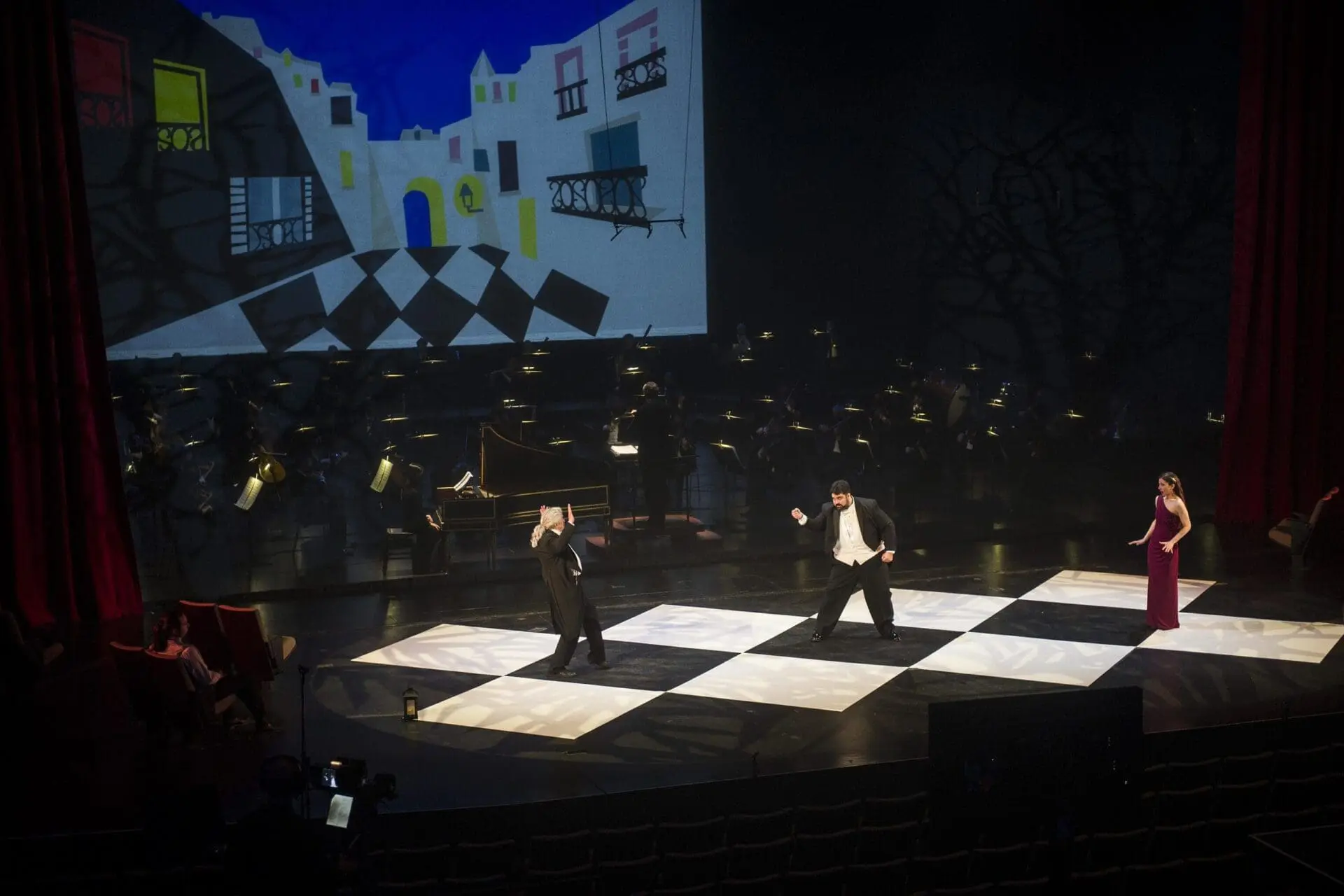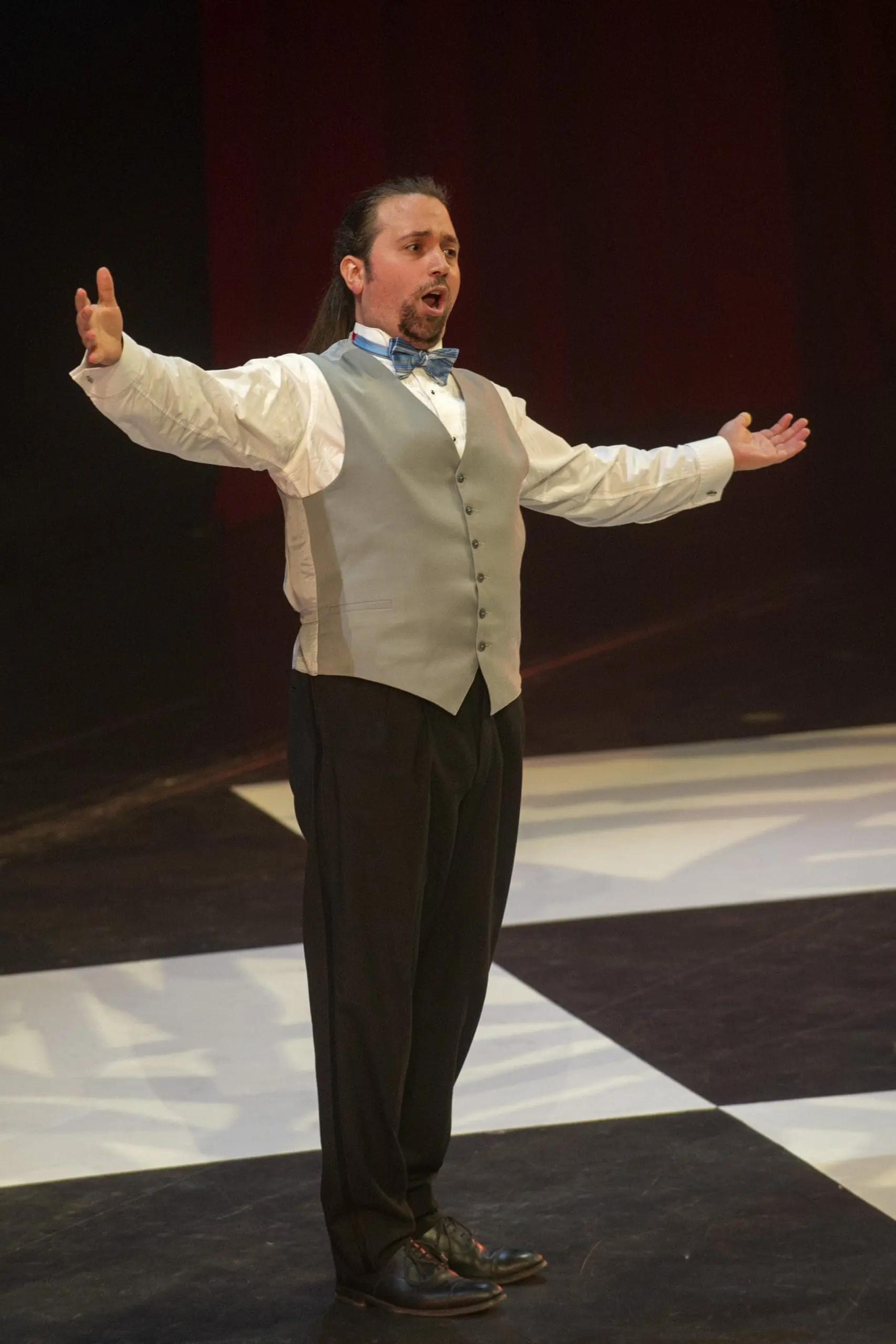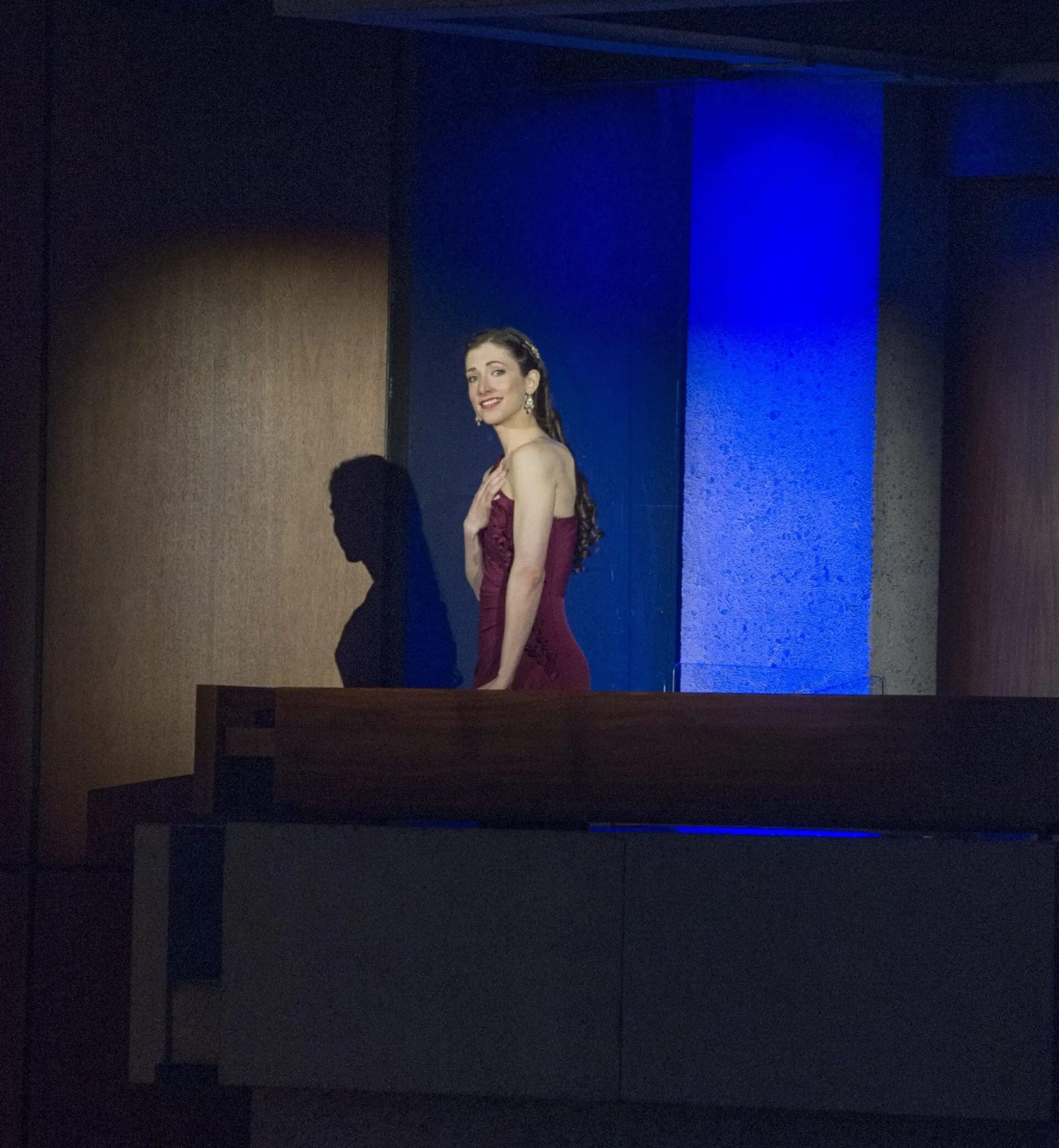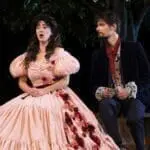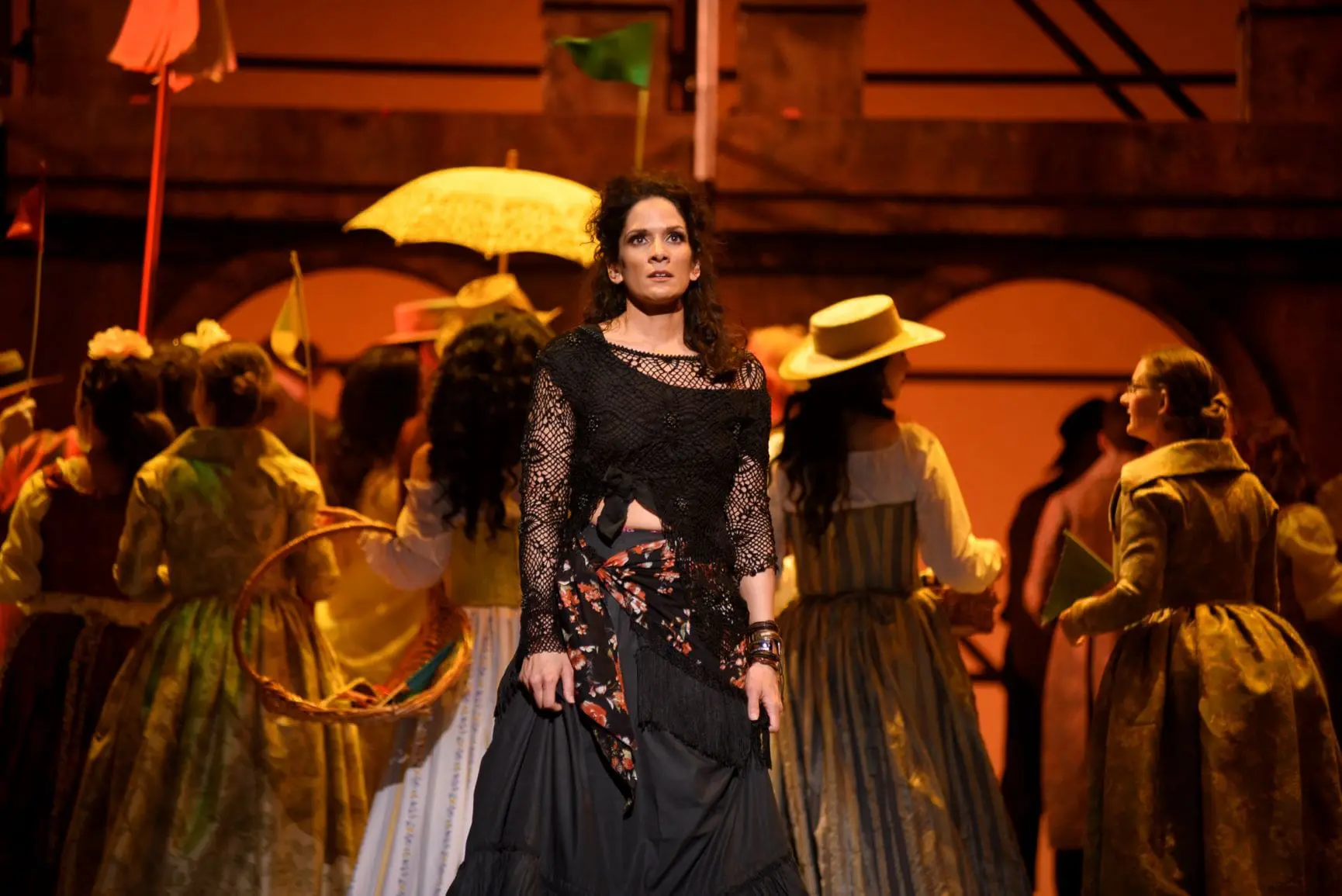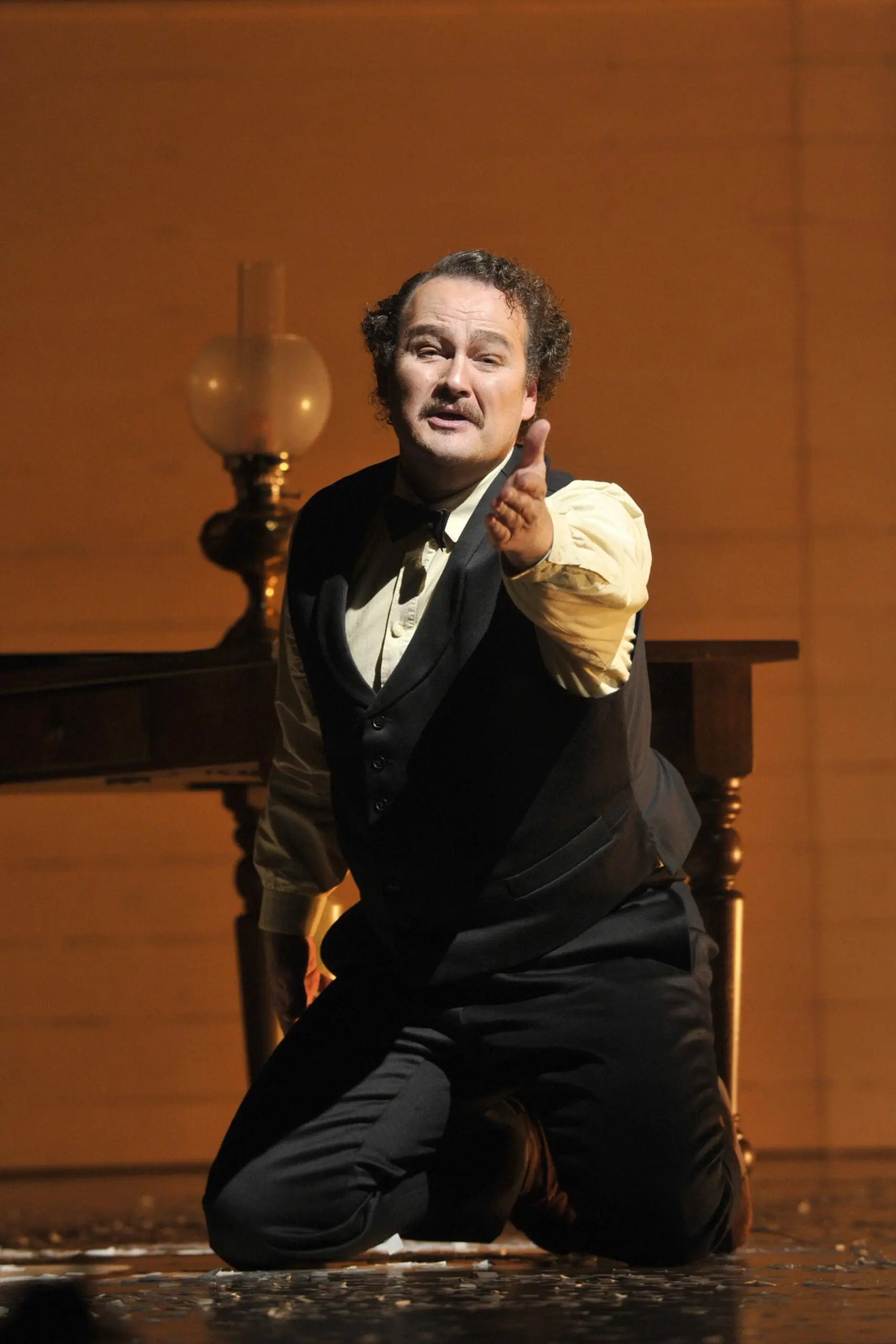Due to the pandemic, the last opera to be performed in Québec City was La traviata in October 2019. Having started his role as Opéra de Québec’s artistic director soon thereafter, Jean-François Lapointe had to rethink the entire 2020-2021 season. Turning to webcasts, he found a way to keep in touch with the public and allow artists to still be heard. After a gala concert in October and a Valentine’s Day concert, Opéra de Québec was able to reopen online for a few weeks as of May 29th, on the stage of the Grand-Théâtre with a concert version of Rossini’s Il barbiere di Siviglia.
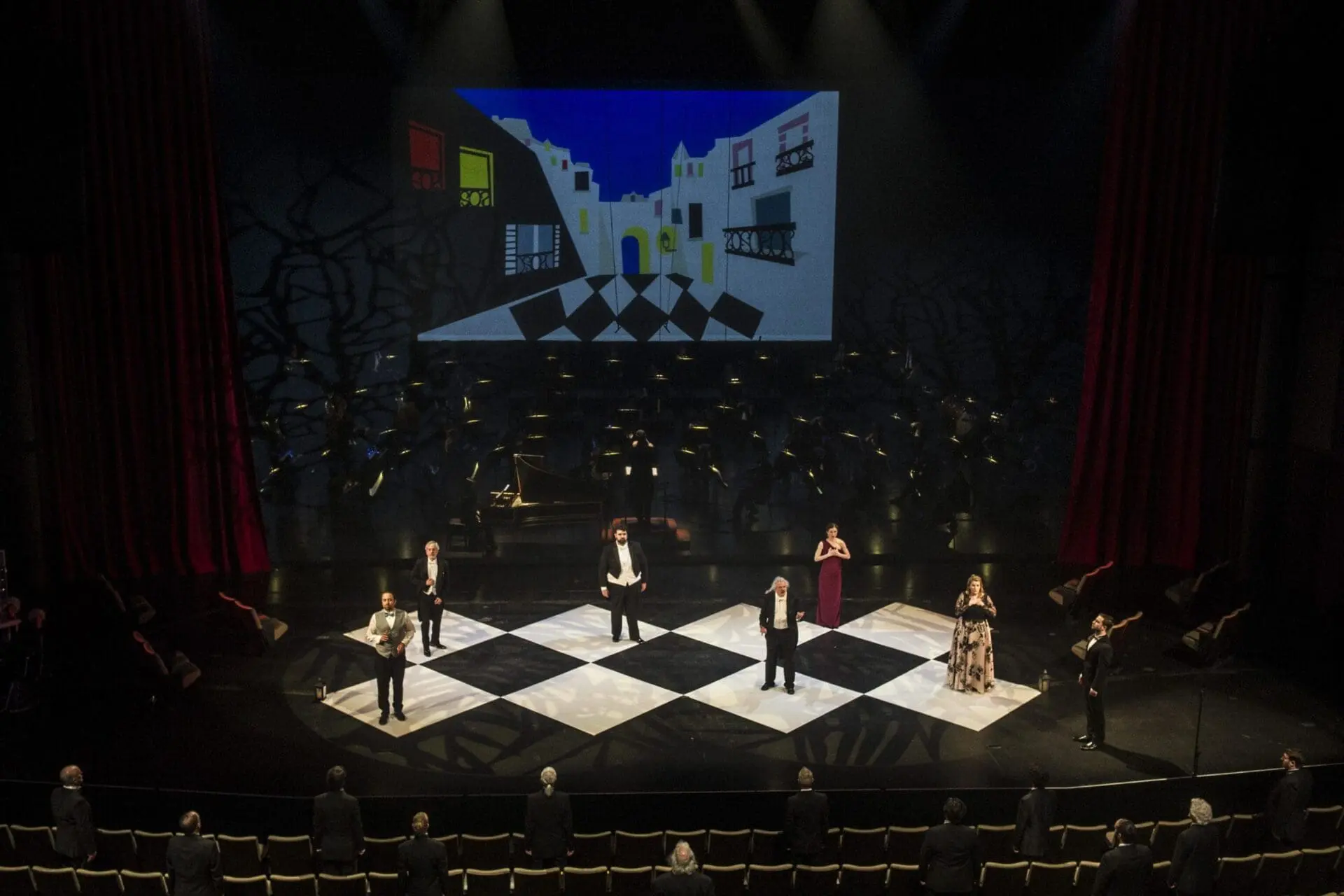
Hugo Laporte (Figaro), Alain Coulombe (Basilio), Andrew Haji (Count Almaviva), Doug MacNaughton (Bartolo), Sarah Bissonnette (Rosina), Chantal Parent (Berta), and William Desbiens in Il barbiere di Siviglia, Opéra de Québec. Photo: Louise Leblanc.
Without quite attempting to visually exploit all of Act II’s imbroglio, Jean-François Lapointe created an ingenious staging, accompanied by modest but effective scenography by Michel Baker, a regular at the house. A district of Seville, a music room with its singing scores, and a balcony were projected successively on a screen. At the back of the stage the Orchestre symphonique de Québec was in the shadows. At the front of the stage, the singers, in concert dress, moved on a vast checkerboard floor that extended past what we saw on the screen, while 12 members of OdeQ’s chorus, whose performances should be applauded, were in the front rows of the pit. All respected the two meters distance requested by Public Health.
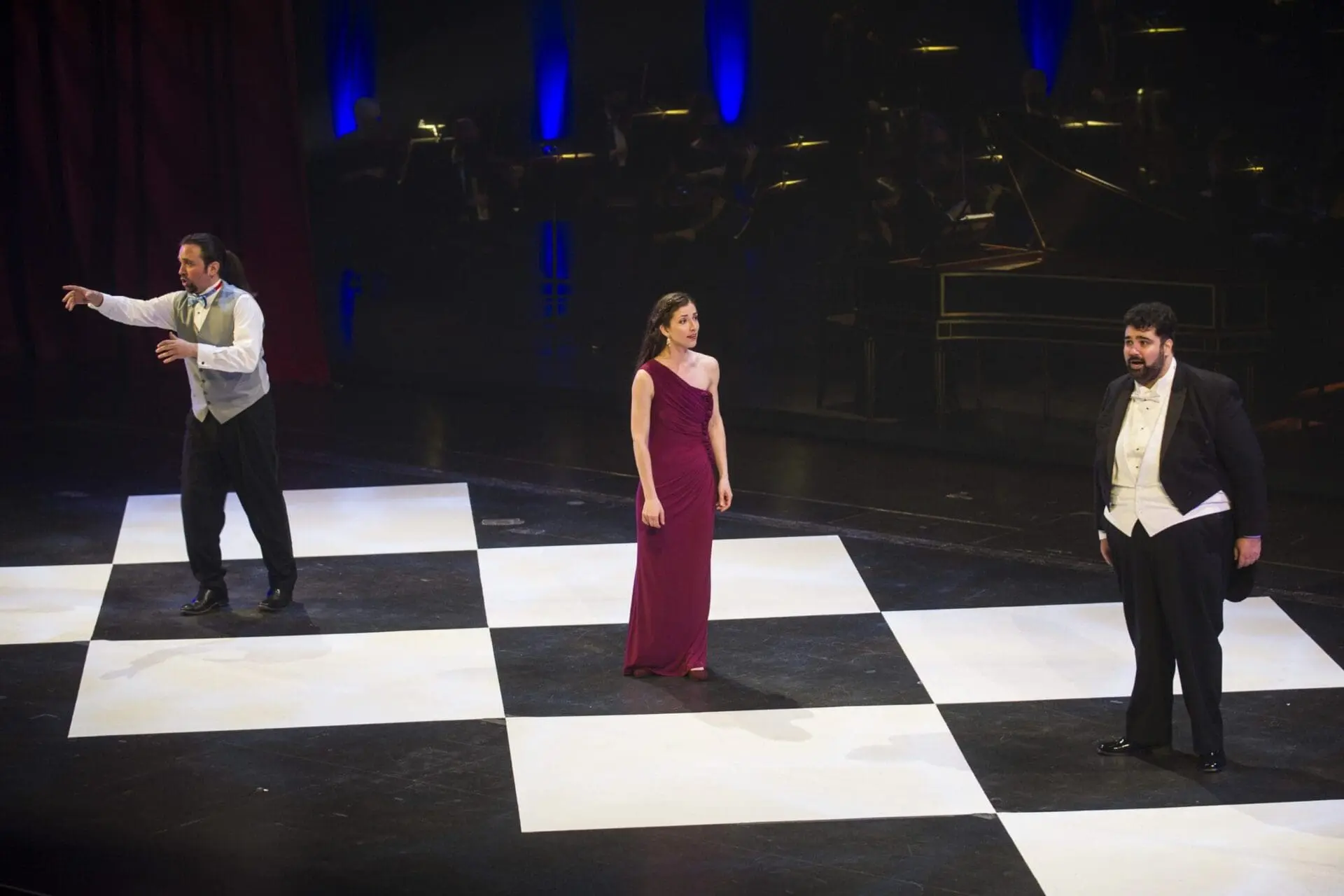
Hugo Laporte (Figaro), Sarah Bissonnette (Rosina) and Andrew Haji (Count Almaviva) in Il barbiere di Siviglia, Opéra de Québec. Photo: Louise Leblanc.
From the opening, conductor Jean-Michel Malouf showed authority and elegance, even if Rossini’s spectacular crescendos and the Act II storm seemed to lack panache. And because Malouf was positioned with his back to the singers, he wasn’t able to leave them much room to catch their breath, and it took all his composure so that the finales of each act didn’t run away from him.
Most of the recitatives were replaced with brief comments entrusted to Québecois actor Bertrand Alain who handled the transitions between arias with humour.
Seven Canadian singers brilliantly handled Rossini’s challenges: tenor Andrew Haji was a solid Count Almaviva, capable of seducing the young Rosina while ramping up his acting in his guise as drunken soldier and music master. He was able to show off the lightness of his velvety voice in the languid cavatina “Ecco ridente in cielo” – showing off a spectacular high C – and in Lindoro’s aubade, both of which were accompanied by guitarist David Jacques. Even if he lost a little of its tone and precision in Rossini’s acrobatic vocalises, he proved that his voice projects well. His accomplice Figaro, sung by baritone Hugo Laporte, managed to make us forget that this was a concert version. Laporte, who has experienced a remarkable rise in recent years, shined especially in his duets with the Count and Rosina, and his “Largo al factotum”, though a little cautious, will undoubtedly be enriched over the years.
Sarah Bissonnette’s Rosina is sparkling. The mezzo-soprano has a beautiful vocal palette, and her brilliant coloratura is pulled off with ease, as she demonstrated in the famous “Una voce poca fa” as well as in her duet with Figaro, “Dunque io son”.
I had high expectations for Don Basilio’s “slander” aria, but bass Alain Coulombe‘s performance lacked the venomous feeling required of the piece and I felt his voice was being pushed from behind by the orchestra. I really enjoyed baritone Doug MacNaughton, who has appeared several times at Opéra de Québec, notably in operas by Rossini. Irresistibly funny and endowed with a powerful voice, he easily entered the shoes of the tyrannical and easily fooled Doctor Bartolo.
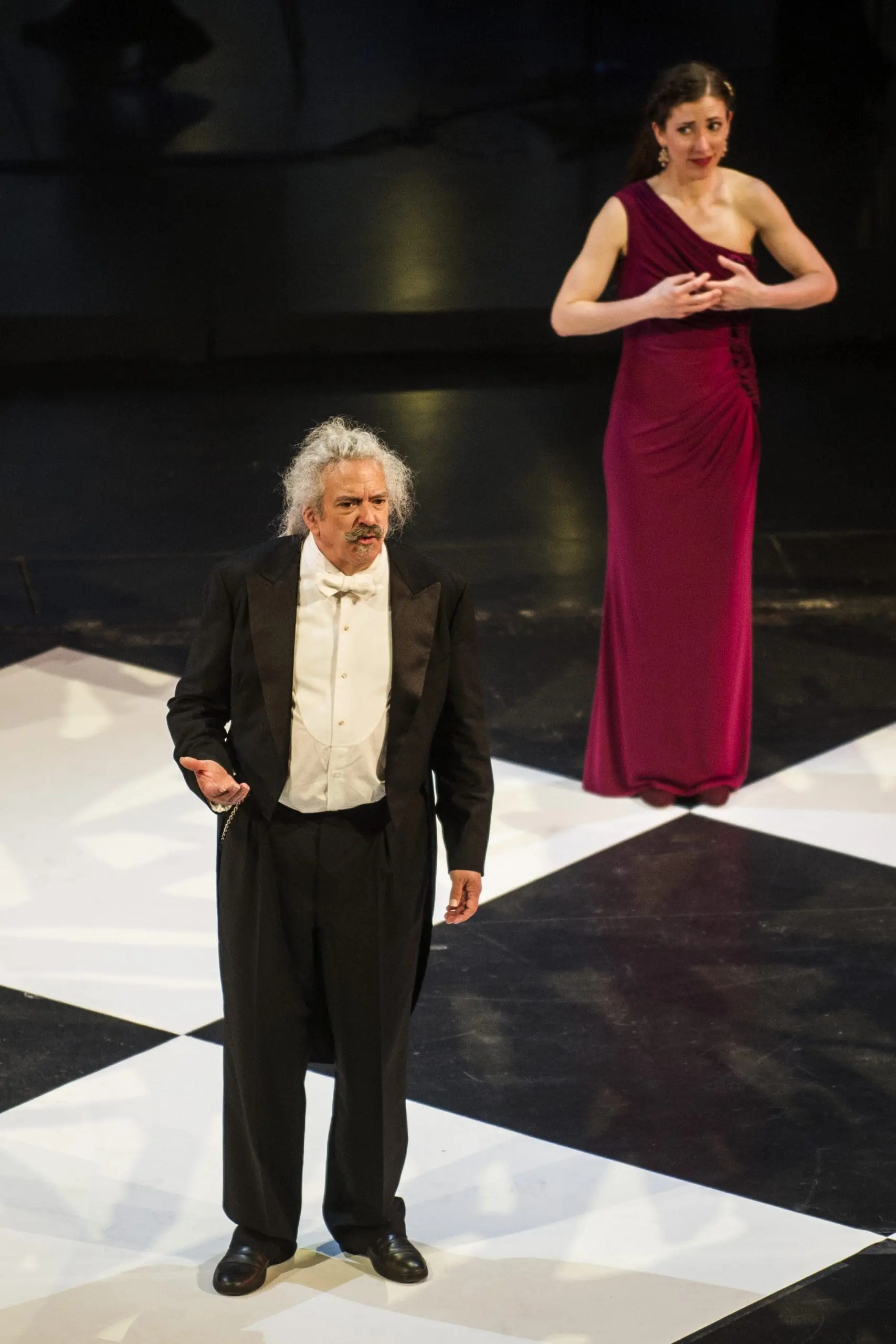
Doug MacNaughton (Bartolo) and Sarah Bissonnette (Rosina) in Il barbiere di Siviglia, Opéra de Québec. Photo: Louise Leblanc.
Two beautiful revelations came from the next generation: soprano Chantal Parent as Berta, the servant full of good sense, revealed her talent with her aria “Il vecchiotto cerca moglie”, and baritone William Desbiens was a Fiorillo overflowing with energy and remarkable vocals.
Presented online for free like Opéra de Québec’s two other pandemic concerts, Il barbiere di Siviglia was seen live by more than 1,200 people, a figure that had doubled by the day after the premiere and is expected to continue to grow.
This review was translated from its original French by Alya Stationwala.


